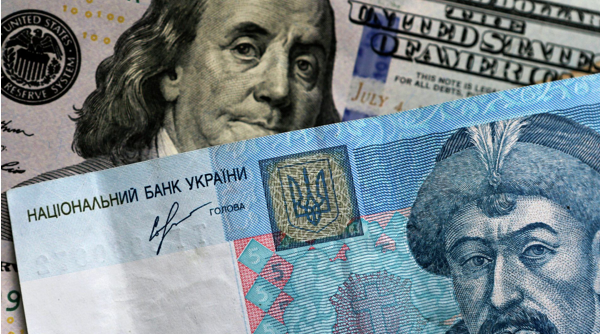Explaining why Ukraine's economy still improves despite being at war
Experts point out that Ukraine's upgrade to upper-middle-income status by the World Bank is largely due to its population emigration and foreign aid injections.

Citing a ranking recently published by the World Bank, Sputnik radio reported that the organization has upgraded Ukraine's economic status despite the country being on the brink of bankruptcy.
Economic observers say the paradox is due to the fact that Ukraine's economy is expected to grow by 5.3% in 2023 after a sharp 28.8% contraction in 2022, and the country's population has fallen by about 15% since the conflict with Russia broke out.
As a result, Ukraine’s per capita gross national income has recently increased from $4,270 to $5,070. This figure automatically places Ukraine in the upper-middle-income category according to the World Bank’s classification. According to the World Bank, upper-middle-income countries are those with a per capita gross national income between $4,036 and $12,536 per year.
“Ukraine has received a strong flow of financial support from outside. And it is this external support that has helped the Ukrainian economy to survive in the face of military problems,” said Andrey Kolganov, head of the Department of Socio-Economic Systems at the Faculty of Economics at Moscow State University.
Since February 2022, Ukraine has received nearly 108 billion euros ($115.9 billion), including 39 billion euros ($41.8 billion) in military aid from the European Union and its member states.
In addition, Washington has so far spent about 175 billion USD on Ukraine, including 107 billion USD in direct support for the Kiev government, including 34.2 billion USD in budget support and 69.8 billion USD in weapons and military support.
“The Ukrainian economy has never been in the league of efficient economies. Its economic indicators before the war were not bright. It is one of the few post-Soviet countries that has never recovered its initial level of GDP per capita. If this external support ends, I am afraid that Ukraine’s economic benefits will disappear immediately,” Kolganov assessed.
According to this expert, the importance of external funding to Ukraine can be clearly seen when compared with the Israeli war in Gaza. In Gaza and the West Bank, per capita income always decreases significantly in the context of war.
“Without outside support, military operations would be extremely destructive. Of course, they would not bring any economic benefits,” Kolganov explained.
The Economist reported on June 30 that Ukraine's creditors have agreed to suspend debt payments for two years, but the repayment deadline for foreign private bondholders will end on August 1, leaving the country with only a short time to avoid default.
The magazine warned that if Ukraine defaults, it would negatively affect investor confidence in Western support and would call into question Ukraine's ability to recover from the war and its future access to financial markets.
